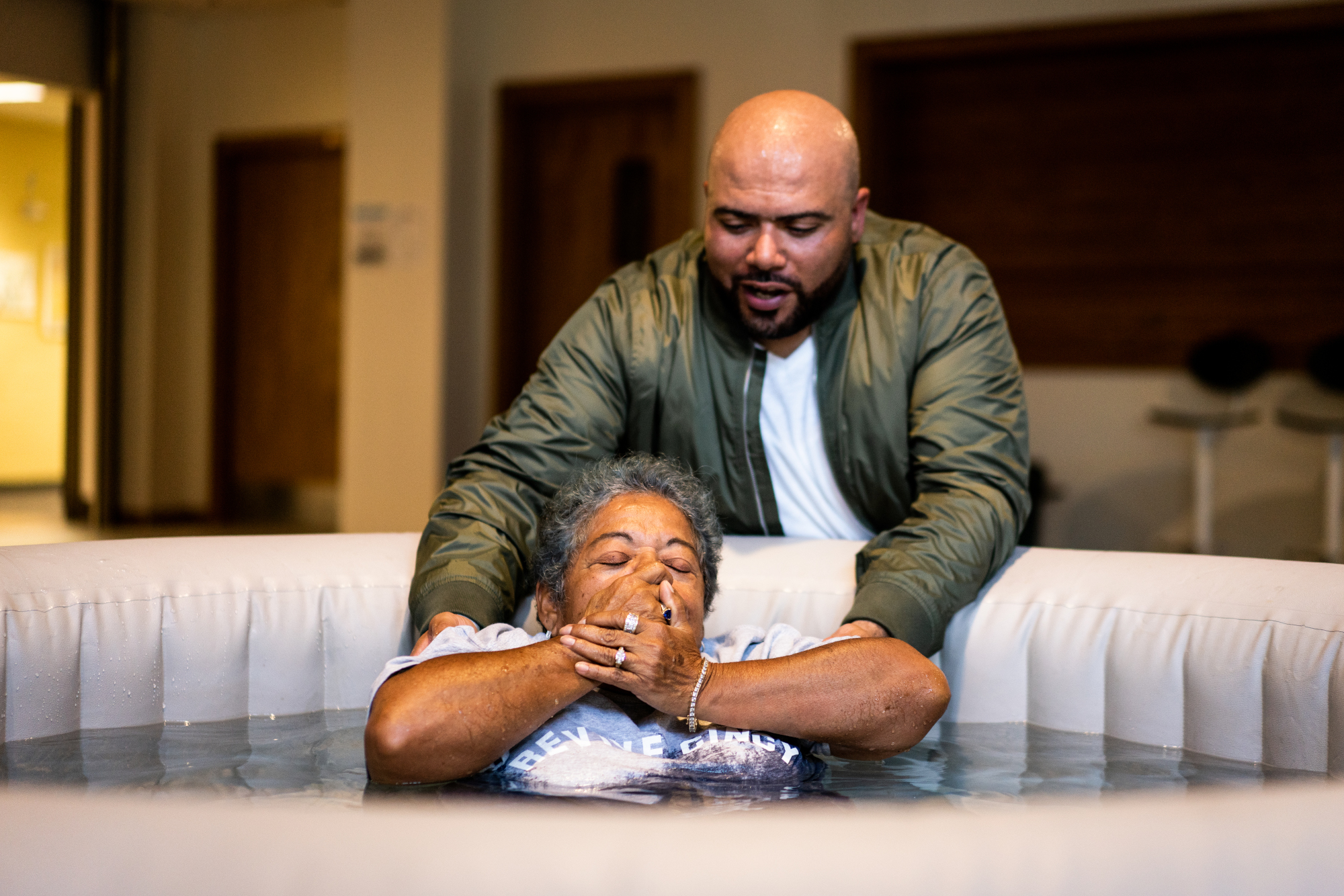
Perhaps, like me, you’ve had the experience of returning to a place that was once familiar, only to find it different than you remember—or rather, the place is the same, but you have new eyes as you walk through it.
I encountered this phenomenon when my family sold the house I grew up in. When I returned to help my mom and sisters get the place ready for sale, it had been six years since I had lived there. The house was intimately familiar, and the task of preparing it for sale was full of nostalgia, heartache, laughter, and tears as my mom, sisters, and I reminisced our way through the cleaning, packing, and staging. This place had provided the environment in which I was nurtured, had fed my vision of what family was supposed to be, and had been in many ways the backdrop for my adolescent formation.
However, at the same time as the space was familiar, I also saw it with new eyes. Since the house needed to be presentable to someone who didn’t have twenty years of the appreciation that familiarity can create, it needed to be inspected by a detached observer. As I tried to view the house from a potential buyer’s perspective, I noticed some things: the floorboards of the entryway were saggier than I remembered. The musty smell of the three-season porch that reminded me of summer nights and conversations with Dad would not convey the same fond memories to a visitor. The bedrooms that had hosted my sisters and me through our formative years were much smaller than I recalled. The paint colors were long out of style. The way the cabinet doors stuck when the humidity crept in through open windows stood out. And the backyard—most of which had been cemented over as a dedicated basketball court to accommodate my unlikely sports dreams—suddenly seemed as though it had sacrificed all its potential.
The thing I realized as I walked through the house was the new eyes I now had to see the house. For example, though I do not remember a time our cabinet doors did not stick, I also do not remember ever thinking twice about it. We could have taken the doors off their hinges, sanded down the edges, stained them more precisely, and rehung them more carefully. But the working solution was much easier. And it was something to which we had accommodated our habits: you just had to pull harder. It wasn’t a fix. It didn’t address the problem. But it was familiar, it was ingrained, and it was what we did. We were used to it being that way, and there was no compelling reason to change. That is, there was no reason to change until we began to think of the space as it would appear to an outsider.
Coming Home to the American Church
A few years ago, my family and I experienced another kind of homecoming in which we encountered a similar phenomenon. We found ourselves returning not just to a home, but to a home country. Having lived in North Africa and the Middle East for most of seven years, we found ourselves transitioning back to life in the culture in which we were raised. I was grateful to take a job teaching missions and theology at an evangelical university here in the familiar cornfields of the Midwest.
In addition to teaching at the university, we have found a welcoming community of believers at a local Baptist church within walking distance from our home. This church is wonderfully similar to the churches my wife and I grew up in. In addition to being members of the church, I have also recently been entrusted with the task of serving as an elder—a role that continually overwhelms me with the magnitude of its responsibility. In both settings I am being challenged and encouraged by my colleagues, coworkers, and church family. In both settings I find myself experiencing a sort of homecoming after living as a religious minority in a very different cultural environment.
Simply stated, I love this evangelical university, and I love my evangelical church.
Yet as we have recently returned to ministry spaces similar to those we grew up in, my wife and I have noticed the mission field has changed some of our outlook. We have experienced looking around the evangelical house through these missionary lenses. I believe that a missionary perspective is vital to considering how today’s American evangelical house might better display the gospel and serve as the pillar and buttress of the truth that Paul says it is intended to be.
There are several missionary skills and perspectives that will prove helpful in this task. During our missionary training, we were challenged to look at the broader world around us and our global neighbors differently than we had been doing. We needed to study our new neighbors, their culture, and their language so we could make sure that when we shared the gospel we would be understood. This task is called contextualization. But what we have come to realize is that contextualization is just as important at home.
Additionally, we needed to learn how to live as foreigners in a country where we were not natural-born citizens. Contrary to our assumptions of our American upbringing, we could not expect the government to advocate for or even protect our freedoms. We were minorities whose presence within the borders of a foreign country was always tenuous. Such a perspective can help us recognize ways we have grown accustomed to expecting our earthly citizenship to fill the role of our heavenly citizenship.
And, perhaps more than any other influence on our view of ministry and the church, we were humbled and convicted as we watched our brothers and sisters in Christ faithfully live out the gospel in the midst of the persecution and daily hardships that resulted from their faith. The way they persistently and joyfully clung to Christ in the midst of those who sought to take everything else away from them has indelibly marked my own understanding of the preciousness of the gospel.
As a result of our training and experience as missionaries, we have been changed in significant ways. As any person living in a sin-sick world who still battles their flesh, we have our own blind spots and persistent failures. But having returned and considered some of the most pressing issues the American church is facing, I am convinced the missionary lenses we were trained to look through can help Christians see some of the confusing and frustrating elements of Western culture today with a little more clarity.
Excerpt adapted with permission from Hope for American Evangelicals by Matthew Bennett. Copyright 2023, B&H Publishing.


